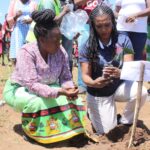Global poverty decreases by 20%, but struggle for better life continues in Africa
Published on April 16, 2013 at 12:47 PM by FACE OF MALAWI
Global poverty is no longer what it is used to be, a United Nations Human Development Index (HDI) report released last week shows, saying that the number of people living in extreme poverty worldwide has decreased by about 20%.
“Never in history have the living conditions and prospects of so many people changed so dramatically and so fast,” the 2013 HDI – the Rise ofthe South: Human Progress in a Diverse World report says.
The report attributes this decrease to sustained investment in education, healthcare and social welfare, and more enlightened trade and economic policies.
The criteria used by the report to determine countries’ efforts to alleviate poverty include people’s living standards, access to basic healthcare, and education.
The HDI report ranks the following top 10 countries as highest scorers for their efforts to develop their populations, and improve their standards of living: Norway, Australia, United States, Netherlands, Germany, New Zealand, Ireland, Sweden, Switzerland and Japan.
However, while a considerable number of countries are seen to be forging ahead in the quest for human development, the struggle to put food on the table and send kids to school, among others, looks unending for the populations of many African countries.
These African countries – most of them torn apart by state corruption, armed conflict and dictatorship – have scored the lowest marks in the HDI, and are therefore designated ‘Low Human Development Countries’ and squeezed at the bottom of the index.
Here they are: Burundi, Guinea, Central African Republic, Eritrea, Mali, Burkina Faso, Chad, Mozambique, DRC, and Niger.
The UN report salutes what it called the ‘impressive’ progress made by smaller countries such as Ghana, Rwanda, Uganda, Bangladesh, Laos, Tunisia, and Vietnam to lift their populations out of poverty and improve human development scores.
Helen Clark, Administrator of United Nations Development Programme (UNDP), called for a critical look at global governance institutions to promote a fairer, more equal world. Clark pointed to outdated structures, which she said in the report do not reflect the new economic and geopolitical reality described, and considers options for a new era of partnership.
Finally the report called for greater transparency and accountability, and highlighted the role of global civil society in advocating for this and for greater decision-making power for those most directly affected by global challenges.


